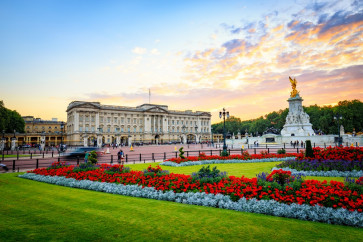Popular Reads
Top Results
Can't find what you're looking for?
View all search resultsPopular Reads
Top Results
Can't find what you're looking for?
View all search resultsAs the world retreats, Norway takes lead on forest protection
Going green: Norwegian Minister for Climate and Environment Ola Elvestuen speaks during the opening ceremony of the Oslo Tropical Forest Forum on Wednesday
Change text size
Gift Premium Articles
to Anyone
G
oing green: Norwegian Minister for Climate and Environment Ola Elvestuen speaks during the opening ceremony of the Oslo Tropical Forest Forum on Wednesday. The conference runs through Thursday. (JP/M. Taufiqurrahman)
As major world powers like Germany, the United Kingdom and the United States retreat from efforts to mitigate climate change, Norway has stepped up its efforts to stop tropical deforestation.
On Wednesday, Norway kicked off a two-day conference, the Oslo Tropical Forest Forum, which will highlight the current state of deforestation in the tropics, as well as present the latest science on the importance of forests for the climate. The conference is also taking stock of the fight to end deforestation.
Norwegian Minister for Climate and Environment Ola Elvestuen said the world needed to act quickly to stop deforestation, despite the changing political conditions affecting countries that had championed efforts to tackle climate change.
“The world is warming and we need to do this immediately,” Elvestuen told the press before starting the conference on Wednesday. “The seriousness of the problem can’t be overstated.”
The conference is taking place against the backdrop of a recent decision by US President Donald Trump to quit the Paris Climate Agreement even as major European countries are preoccupied with internal political problems, like Germany, where Chancellor Angela Merkel’s leadership is being challenged by her coalition partners, and the UK, which has been hobbled by protracted Brexit negotiations.
It does not help that in countries where tropical forests exist, their governments continue to be wracked by political crises.
In Brazil, home to the Amazon rain forest where the government of President Michel Temer is dealing with growing opposition, the level of forest degradation remains historically high, representing 30 percent of total global deforestation, the latest data from the University of Maryland shows.
In Colombia, the South American country experienced a worrying jump with a 46 percent rise in tree cover loss in 2017 from the previous year. The number of hectares lost — nearly 425,000 — was more than double the average loss from 2001 through 2015.
Politics has been blamed for the increasing rate of deforestation. Colombian President Juan Manuel Santos acknowledged that the retreat of the Revolutionary Armed Forces of Colombia (FARC) rebels was partially
responsible.
Responding to a changing political situation that could be detrimental to climate efforts, Elvestuen said Norway would continue working to find parties that could contribute to improvements.
“The world is changing and we need to work with whoever we could work with right now,” said Elvestuen, a Liberal Party politician who was appointed as environment minister in January this year.
He said work with countries like the UK and Germany would continue in the future. “We have a good cooperation with Germany and the UK in terms of funding. The payment needs to be scaled up,” Elvestuen said.
Norway has been seen as a climate leader despite being one of the world’s biggest oil producers that continues to increase production for export.
As the country exports most of its oil, the Norwegian government has been pushing policies to phase out fossil fuels, including by giving incentives for people to buy electric cars. It is common to see Oslo residents driving Teslas and other types of electric cars that are relatively inexpensive in the country.
The country has also led the way in the efforts to tackle climate change by donating funds to stop deforestation. In 2010, Norway signed an agreement with Indonesia to provide US$1 billion to offset carbon emissions by maintaining its forests.
Frances Seymour, a senior fellow at the World Research Institute, said as traditional partners in climate efforts are stepping aside, countries like Norway need to find new partners.
“On the other hand, we have big corporations like Nestle’s, which have their reputations on the line and would work more to stop deforestation,” Seymour said.










